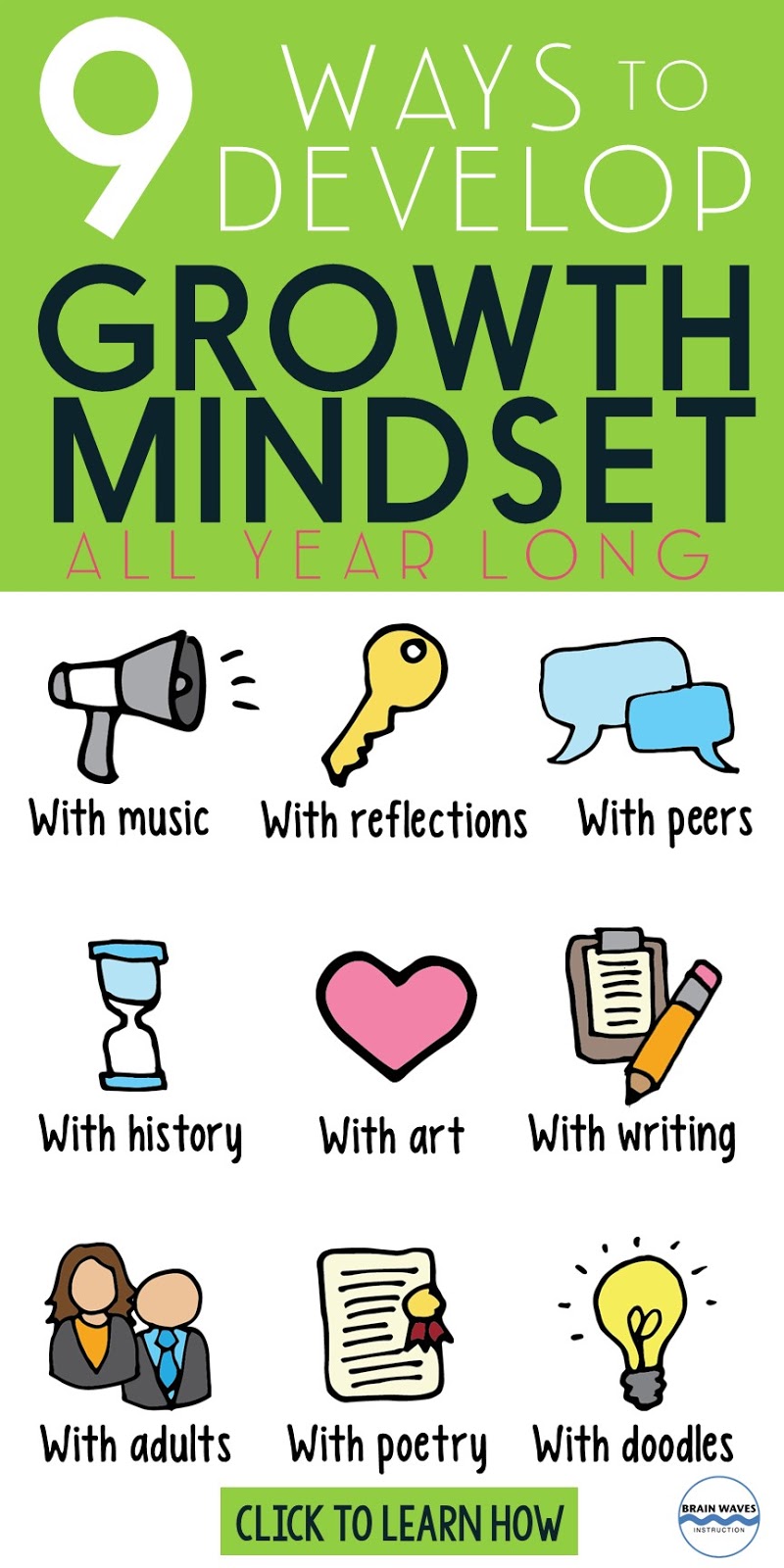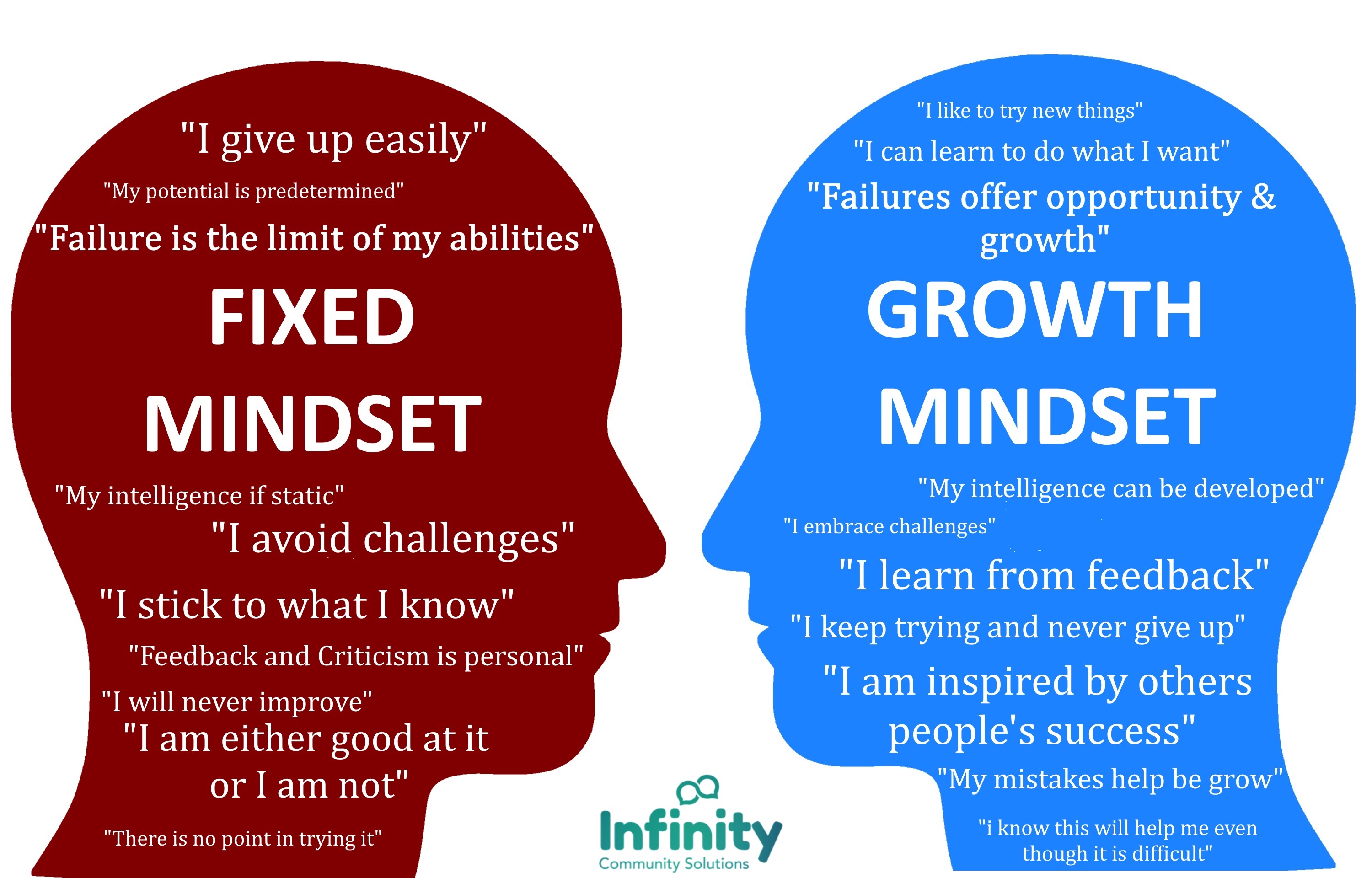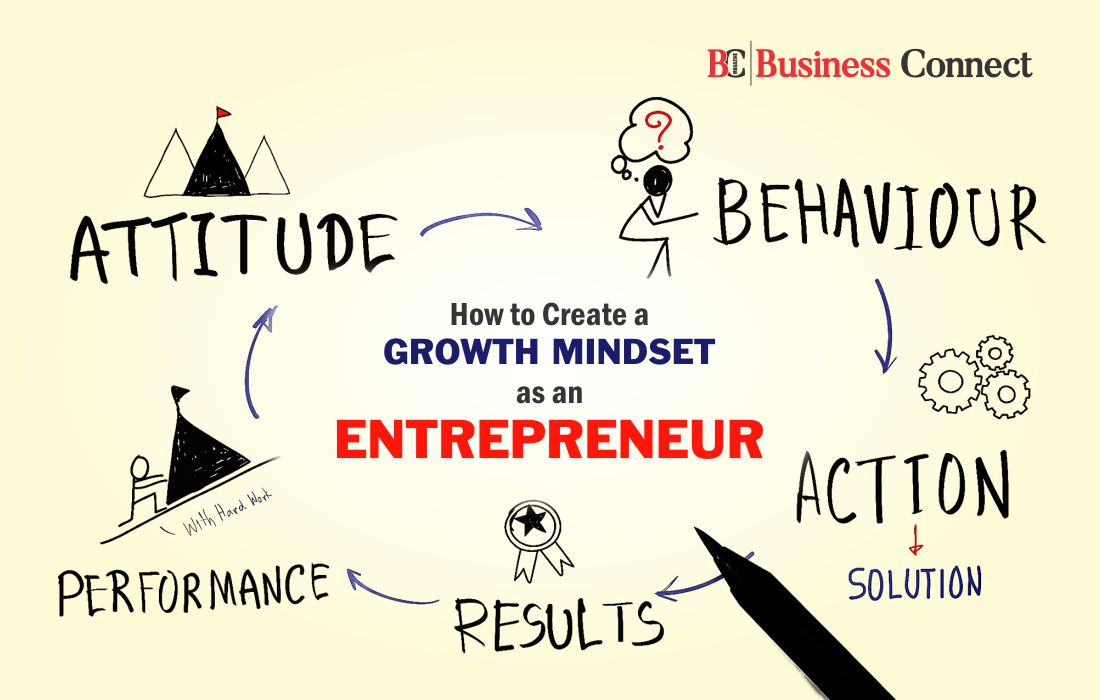Embracing a Growth Mindset: The Key to Entrepreneurial Success
Entrepreneurship is a journey marked by uncertainty, risk, and relentless challenge. To succeed in this environment, entrepreneurs must cultivate a mindset that is adaptable, resilient, and open to growth. This mindset is known as a growth mindset, and it is the key to unlocking entrepreneurial success. By embracing a growth mindset, entrepreneurs can overcome obstacles, adapt to change, and achieve their goals.
A growth mindset is rooted in the belief that abilities and intelligence can be developed through dedication and hard work. This mindset is characterized by a love of learning, a willingness to take risks, and a resilience in the face of failure. Entrepreneurs with a growth mindset see challenges as opportunities for growth and development, rather than threats to their ego or status.
Building a growth mindset for entrepreneurs is essential for navigating the complexities of the business world. With a growth mindset, entrepreneurs can stay focused on their goals, even in the face of adversity. They can adapt to changing market conditions, and innovate in response to new challenges. By embracing a growth mindset, entrepreneurs can unlock their full potential and achieve success in their endeavors.
Furthermore, a growth mindset is essential for building strong relationships with customers, employees, and partners. When entrepreneurs demonstrate a growth mindset, they show that they are committed to learning, improving, and growing. This commitment builds trust and credibility, and helps to establish strong relationships that are essential for business success.
In today’s fast-paced business environment, entrepreneurs need to be able to adapt quickly to changing circumstances. A growth mindset enables entrepreneurs to do just that, by providing them with the tools and strategies they need to navigate uncertainty and stay ahead of the curve. By building a growth mindset, entrepreneurs can stay competitive, innovate, and achieve long-term success.
Recognizing Fixed Mindset Patterns: Identifying Limiting Beliefs
While a growth mindset is essential for entrepreneurial success, many entrepreneurs struggle with fixed mindset patterns that can hold them back. A fixed mindset is characterized by a belief that abilities and intelligence are fixed and unchangeable. This mindset can lead to a fear of failure, perfectionism, and self-doubt, which can ultimately limit an entrepreneur’s potential.
One common fixed mindset pattern is the fear of failure. Entrepreneurs with a fear of failure may avoid taking risks or pursuing new opportunities, which can stifle innovation and growth. For example, an entrepreneur may be hesitant to launch a new product or service because they fear it will fail, rather than seeing it as an opportunity to learn and improve.
Perfectionism is another fixed mindset pattern that can hold entrepreneurs back. Entrepreneurs with a perfectionistic mindset may become overly critical of themselves and others, which can lead to burnout and decreased productivity. For instance, an entrepreneur may spend excessive time and resources trying to perfect a product or service, rather than iterating and improving it over time.
Self-doubt is also a common fixed mindset pattern that can limit an entrepreneur’s potential. Entrepreneurs with self-doubt may question their abilities and second-guess their decisions, which can lead to indecision and inaction. For example, an entrepreneur may doubt their ability to lead a team or make strategic decisions, rather than trusting their instincts and expertise.
Recognizing these fixed mindset patterns is the first step to overcoming them. By acknowledging the limitations of a fixed mindset, entrepreneurs can begin to develop a growth mindset and unlock their full potential. In the next section, we will explore practical strategies for building a growth mindset and overcoming fixed mindset patterns.
How to Develop a Growth Mindset: Strategies for Entrepreneurs
Developing a growth mindset is a crucial step for entrepreneurs who want to achieve success and stay ahead of the competition. By adopting a growth mindset, entrepreneurs can overcome obstacles, adapt to change, and achieve their goals. So, how can entrepreneurs develop a growth mindset?
One strategy is to embrace challenges and view them as opportunities for growth and development. Entrepreneurs with a growth mindset see challenges as a chance to learn and improve, rather than as threats to their ego or status. For example, an entrepreneur who is facing a difficult decision may view it as an opportunity to learn and grow, rather than as a source of stress and anxiety.
Another strategy is to learn from failures and use them as opportunities for growth. Entrepreneurs with a growth mindset see failures as a natural part of the learning process, rather than as a source of shame or embarrassment. For instance, an entrepreneur who has launched a product that failed may use the experience as an opportunity to learn and improve, rather than giving up.
Seeking feedback is also an important strategy for developing a growth mindset. Entrepreneurs with a growth mindset are open to feedback and use it as an opportunity to learn and improve. For example, an entrepreneur who has received feedback on their product or service may use it to make improvements and increase customer satisfaction.
Successful entrepreneurs who have adopted a growth mindset include Richard Branson, founder of Virgin Group, and Sara Blakely, founder of Spanx. These entrepreneurs have demonstrated a willingness to take risks, learn from failures, and seek feedback, which has helped them to achieve success and stay ahead of the competition.
By adopting these strategies, entrepreneurs can develop a growth mindset and achieve success in their endeavors. Building a growth mindset for entrepreneurs is essential for navigating the complexities of the business world and staying ahead of the competition. With a growth mindset, entrepreneurs can overcome obstacles, adapt to change, and achieve their goals.
The Power of Self-Awareness: Understanding Your Thought Patterns
Self-awareness is a crucial component of building a growth mindset for entrepreneurs. It involves having a deep understanding of your thought patterns, emotions, and behaviors, and how they impact your decision-making and actions. By developing self-awareness, entrepreneurs can better navigate the challenges of starting and growing a business, and make more informed decisions that align with their goals and values.
One of the key benefits of self-awareness is that it allows entrepreneurs to recognize when they are operating from a fixed mindset. By becoming more aware of their thoughts and emotions, entrepreneurs can identify patterns of negative self-talk, self-doubt, and fear of failure that can hold them back from achieving their goals. For example, an entrepreneur may notice that they tend to procrastinate when faced with a difficult task, or that they often second-guess their decisions. By recognizing these patterns, entrepreneurs can take steps to overcome them and develop a more growth-oriented mindset.
So, how can entrepreneurs develop greater self-awareness? One strategy is to practice mindfulness and meditation. These practices can help entrepreneurs become more aware of their thoughts and emotions in the present moment, and can reduce stress and anxiety. Another strategy is to seek feedback from others, such as mentors, peers, or colleagues. By asking for feedback and being open to constructive criticism, entrepreneurs can gain new insights into their strengths and weaknesses, and develop a more accurate understanding of themselves.
Additionally, entrepreneurs can use journaling or reflection to increase their self-awareness. By writing down their thoughts, feelings, and experiences, entrepreneurs can identify patterns and gain a deeper understanding of themselves. This can also help entrepreneurs to develop a greater sense of purpose and direction, and to make more intentional decisions that align with their goals and values.
By developing self-awareness, entrepreneurs can build a stronger foundation for a growth mindset. By understanding their thought patterns, emotions, and behaviors, entrepreneurs can overcome obstacles and achieve their goals. As entrepreneurs continue on their journey of building a growth mindset, self-awareness will remain a critical component of their success.
Building Resilience: Coping with Setbacks and Failures
Building a growth mindset for entrepreneurs requires more than just a positive attitude and a willingness to learn. It also requires resilience – the ability to bounce back from setbacks and failures. Every entrepreneur will face obstacles and challenges, but it’s how they respond to these challenges that will determine their success.
When faced with a setback or failure, many entrepreneurs may feel like giving up. However, this is exactly the moment when they need to dig deep and find the resilience to keep going. By learning from their failures and using them as opportunities for growth, entrepreneurs can develop the resilience they need to succeed.
So, how can entrepreneurs build resilience? One strategy is to reframe their mindset around failure. Instead of viewing failure as a negative outcome, entrepreneurs can see it as a chance to learn and improve. By adopting a growth mindset, entrepreneurs can view failures as stepping stones to success, rather than as roadblocks.
Another strategy is to focus on progress, not perfection. Entrepreneurs who are too focused on achieving perfection may become discouraged when they encounter setbacks. However, by focusing on progress and celebrating small wins, entrepreneurs can build momentum and stay motivated, even in the face of challenges.
Additionally, entrepreneurs can build resilience by developing a support network. Surrounding themselves with people who believe in them and their abilities can help entrepreneurs stay motivated and focused, even when faced with setbacks. This network can include mentors, peers, and colleagues who can offer guidance, advice, and encouragement.
Entrepreneurs can also build resilience by taking care of their physical and mental health. Exercise, meditation, and mindfulness can all help entrepreneurs manage stress and stay focused, even in the face of challenges. By prioritizing their well-being, entrepreneurs can build the resilience they need to succeed.
Finally, entrepreneurs can build resilience by learning from their failures. By analyzing what went wrong and how they can improve, entrepreneurs can use their failures as opportunities for growth and development. This requires a willingness to be vulnerable and open to feedback, but it can pay off in the long run.
By building resilience, entrepreneurs can overcome obstacles and stay motivated, even in the face of setbacks and failures. By learning from their failures and using them as opportunities for growth, entrepreneurs can develop the growth mindset they need to succeed.
Cultivating a Supportive Network: Surrounding Yourself with Growth-Minded Individuals
Building a growth mindset for entrepreneurs requires a supportive network of people who share their values and goals. Surrounding yourself with growth-minded individuals can help entrepreneurs stay motivated, inspired, and accountable, even in the face of challenges and setbacks.
A supportive network can include mentors, peers, and colleagues who have a growth mindset and are committed to helping entrepreneurs achieve their goals. These individuals can offer guidance, advice, and encouragement, as well as provide a sounding board for ideas and concerns.
One way to cultivate a supportive network is to seek out mentors who have experience and expertise in your industry or niche. Mentors can offer valuable insights and guidance, as well as provide a fresh perspective on challenges and opportunities. They can also help entrepreneurs develop a growth mindset by encouraging them to take risks, experiment, and learn from their failures.
Another way to cultivate a supportive network is to join a community of entrepreneurs who share your values and goals. This can include online communities, networking groups, or coworking spaces. These communities can provide a sense of belonging and connection, as well as access to resources, expertise, and support.
Entrepreneurs can also cultivate a supportive network by surrounding themselves with positive and supportive people. This can include friends, family members, or colleagues who are encouraging and supportive. By surrounding yourself with people who believe in you and your abilities, entrepreneurs can stay motivated and inspired, even in the face of challenges and setbacks.
In addition to seeking out mentors and joining communities, entrepreneurs can also cultivate a supportive network by being open and vulnerable with others. This can include sharing your fears, doubts, and concerns with others, as well as being willing to ask for help and support. By being open and vulnerable, entrepreneurs can build trust and rapport with others, and create a supportive network that can help them achieve their goals.
By cultivating a supportive network, entrepreneurs can build a growth mindset and achieve their goals. A supportive network can provide the encouragement, guidance, and support that entrepreneurs need to stay motivated and inspired, even in the face of challenges and setbacks.
Ultimately, building a growth mindset for entrepreneurs requires a supportive network of people who share their values and goals. By surrounding yourself with growth-minded individuals, entrepreneurs can stay motivated, inspired, and accountable, and achieve their goals.
Practicing Mindfulness and Self-Care: Maintaining a Healthy Mindset
Maintaining a healthy mindset is crucial for entrepreneurs who want to build a growth mindset and achieve their goals. Mindfulness and self-care are two essential practices that can help entrepreneurs prioritize their mental and physical well-being, leading to improved focus, productivity, and overall success.
Mindfulness is the practice of being present in the moment, without judgment or distraction. It involves paying attention to your thoughts, feelings, and sensations, and accepting them as they are. By practicing mindfulness, entrepreneurs can reduce stress and anxiety, improve their concentration, and increase their self-awareness.
Self-care is the practice of taking care of your physical, emotional, and mental health. It involves engaging in activities that nourish and recharge your body, mind, and spirit, such as exercise, meditation, and spending time with loved ones. By prioritizing self-care, entrepreneurs can improve their resilience, boost their mood, and increase their energy levels.
So, how can entrepreneurs practice mindfulness and self-care? One way is to start small, by incorporating short periods of mindfulness and self-care into their daily routine. This can include taking a few deep breaths, going for a short walk, or practicing a quick meditation. Entrepreneurs can also schedule self-care activities into their calendar, such as exercise classes, yoga sessions, or spa treatments.
Another way to practice mindfulness and self-care is to prioritize sleep and nutrition. Getting enough sleep and eating a balanced diet can help entrepreneurs maintain their physical and mental health, leading to improved focus, productivity, and overall well-being. Entrepreneurs can also try to limit their screen time, avoid caffeine and sugar, and engage in activities that bring them joy and relaxation.
Additionally, entrepreneurs can practice mindfulness and self-care by setting boundaries and learning to say no. This can include setting realistic goals and expectations, delegating tasks, and taking breaks when needed. By prioritizing their own needs and well-being, entrepreneurs can maintain a healthy mindset and achieve their goals.
By incorporating mindfulness and self-care into their daily routine, entrepreneurs can build a growth mindset and achieve their goals. By prioritizing their mental and physical well-being, entrepreneurs can improve their focus, productivity, and overall success, leading to a more fulfilling and successful life.
Building a growth mindset for entrepreneurs requires a holistic approach that includes mindfulness and self-care. By prioritizing their mental and physical well-being, entrepreneurs can maintain a healthy mindset and achieve their goals, leading to a more successful and fulfilling life.
Sustaining a Growth Mindset: Overcoming Obstacles and Staying Motivated
Sustaining a growth mindset over time requires a combination of strategies that help entrepreneurs overcome obstacles, stay motivated, and continuously learn and improve. By incorporating these strategies into their daily routine, entrepreneurs can build a growth mindset that will serve them well in the face of challenges and setbacks.
One key strategy for sustaining a growth mindset is to celebrate successes. By acknowledging and celebrating their achievements, entrepreneurs can build confidence and motivation, and reinforce the growth mindset. This can be done by setting aside time to reflect on progress, sharing successes with others, and rewarding oneself for milestones achieved.
Another strategy is to stay motivated by setting clear goals and tracking progress. By setting specific, measurable, and achievable goals, entrepreneurs can create a sense of direction and purpose, and stay motivated to work towards their objectives. Regularly tracking progress and adjusting goals as needed can also help entrepreneurs stay focused and motivated.
Continuous learning and improvement is also essential for sustaining a growth mindset. By seeking out new knowledge, skills, and experiences, entrepreneurs can stay ahead of the curve and adapt to changing circumstances. This can be done by attending workshops and conferences, reading books and articles, and seeking out mentorship and coaching.
Additionally, entrepreneurs can sustain a growth mindset by surrounding themselves with positive and supportive people. By building a network of peers, mentors, and colleagues who share their values and goals, entrepreneurs can stay motivated and inspired, and gain valuable insights and advice.
Finally, entrepreneurs can sustain a growth mindset by practicing self-compassion and self-awareness. By being kind and understanding towards themselves, and recognizing their strengths and weaknesses, entrepreneurs can build resilience and stay motivated, even in the face of obstacles and setbacks.
By incorporating these strategies into their daily routine, entrepreneurs can build a growth mindset that will serve them well in the face of challenges and setbacks. By celebrating successes, staying motivated, and continuously learning and improving, entrepreneurs can sustain a growth mindset and achieve their goals.
Building a growth mindset for entrepreneurs requires a long-term commitment to learning, improvement, and self-awareness. By incorporating these strategies into their daily routine, entrepreneurs can build a growth mindset that will serve them well in the face of challenges and setbacks, and help them achieve their goals.







